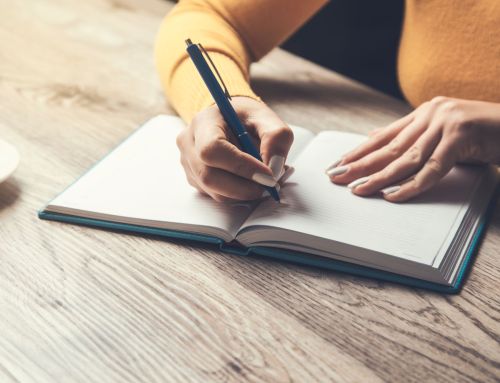
The global coronavirus pandemic is upending a sense of normalcy and stability for millions of people all over the world. People recovering from addiction are particularly vulnerable to feelings of being out of control in these uncertain times. More and more people are struggling or even failing to remain sober. If you are experiencing mounting stress from COVID-19 and its effects on your life, please reach out to us at North Jersey Recovery Center for encouragement to stay on the right track. We have telehealth treatment options available.
At North Jersey Recovery Center, we understand that staying clean is not always easy. After months or years of escaping to alcohol or drugs to cope with inner and outer turmoil, it is difficult to be consistent with the new coping strategies learned during rehab. It can even be hard for people who have never abused drugs to choose positive over negative ways of dealing with major life changes. That’s why we are committed to being available for you, during both crisis and calm.
COVID-19 Could Be Spurring Another Epidemic
Hundreds of millions of Americans are now stuck at home, either working remotely or not at all. They are facing dire financial uncertainty, loneliness, and boredom while battling concurrent fears or realities of sickness and loss of loved ones due to the virus. In past crises such as Hurricane Katrina, many individuals resorted to alcohol and drugs to comfort. Addiction experts worry that increases in substance use will soon place even more strain on our overworked health care system.
Relapse on the Rise
As many states started locking down in March 2020, addiction recovery experts have observed a disturbing spike in relapse rates. Many recovering individuals who have depended upon the routine and socialization of regular group meetings and in-person support are tempted to fill the void of time and connection with harmful self-medication. COVID-19 concerns have also disrupted the availability of medication-assisted treatment for some individuals, making these people more vulnerable to overdosing.
Experts have also noticed another dangerous trend: huge increases in alcohol sales. During this quarantine, individuals are stashing alcohol like toilet paper. Since March, Google searches for alcohol delivery have exploded two-fold. March sales data for alcohol delivery apps show that many Americans are ordering more booze than usual. Online drinking events and virtual happy hours are growing in popularity, with an increase of almost 300% on the scheduling platform Doodle.
Addiction specialists warn that these trends could lead to new cases of alcoholism and worsen current ones. However, the upturn in alcohol interest and consumption seems to have triggered an encouraging jump in Google searches for online counseling and alcohol abuse. This suggests that some people are concerned enough about overindulging to seek information about sobriety.
Substance Use Raises COVID-19 Risks
The National Institute on Drug Abuse reports that people who drink excessively, smoke tobacco or marijuana, or vape could be especially vulnerable to contracting the coronavirus. Those with opioid use disorder and methamphetamine use disorder could be similarly affected. These populations suffer from impaired respiratory and pulmonary systems which the virus can attack viciously.
Opioid use slows breathing and can lead to chronic respiratory disease. COVID-19 complications can further diminish lung capacity to a life-threatening state. Methamphetamine constricts blood vessels, contributing to pulmonary damage which could be exacerbated by the virus. Alcohol intake correlates with many diseases and mental health illnesses that compromise immunity, making a person an easier target for COVID-19.
If you feel as if you are losing your grip on sobriety, hold on and contact us at North Jersey Recovery Center right away. We are still here to help you in your continued recovery.
Ways to Maintain Sobriety
While it may seem easier to swallow your cares with a drink or a pill, alcohol and drugs will only add to your troubles during this pandemic. In this financially and emotionally straining time, you can rise above hopelessness. Use your free time to work on yourself and your relationships. Here are a few tips from addiction specialists for staying clean:
Read Every Day
Bibliotherapy is a widely popular treatment for addiction and depression using books, literature, and other texts. Look up motivational writings or classic poems to introduce yourself to new, positive ideas. Reading stories of individuals who have overcome adversities can instill hope and inspiration to continue persevering.
Write Every Day
If you have gone through an addiction treatment program already, you may be familiar with reflective writing exercises. Recording your thoughts helps you clear your mind and be honest with yourself. Your future self will be grateful to see a journal of what you’re experiencing and accomplishing right now.
Take Up a Healthy Hobby
This lockdown gives you an opportunity to pursue fun, healthy activities. Hobbies can keep you busy and divert your focus from boredom, negativity, and anxiety towards what can bring your joy and a sense of fulfillment. Consider things that you want to learn about or rediscover: drawing, playing an instrument, photography, or cooking.
Experience the Moments
Substance use impacts how the brain functions, often causing emotions to sway uncontrollably. Practicing mindfulness, a powerful recovery tool, equips you to exercise your brain and take control of your thinking at any time, any place. If only for a few moments, take a break from doing and just be — be present in the moment.
Want Help to Stay Clean? There’s an App for That
Numerous apps connect people with peers, track habits, and help you meditate. Most of them are free, too. These resources include:
Connections
The Addiction Policy Forum states that Connections is the only app backed by years of empirical evidence of its supportive capabilities. It features predictive relapse indicators and utilizes analytics to reduce relapse. This app also lets you learn recovery skills through e-therapy and connect with peers and trained counselors.
I Am Sober
I Am Sober invites you to make a daily pledge to stay sober. You can record triggers and review your days. You can also connect with thousands of others who have faced a similar addiction and are at the same point in their recovery.
Loosid
Developed by a recovering alcoholic, Loosid provides online services such as yoga and meditation. It features a “sober curious” group where people who think they’re developing an addiction can get help.
Stay Connected with Support Groups
COVID-19 concerns have led governments to ban most gatherings, including those of addiction recovery support groups. Although you may not be able to meet with counselors and peers in person, you can still connect with them for accountability, encouragement, and insight. Many people are achieving recovery through online or phone counseling, virtual meetings, and resources that promote sobriety.
Alcoholics Anonymous (AA)
AA is a global association of people who have struggled with alcoholism and want to help each other remain sober. Its website has a wealth of information and inspiration. Members list online open and closed meetings on the Online Intergroup page.
Narcotic Anonymous (NA)
NA is an international, community-based fellowship of recovering addicts who connect regularly to help each other stay drug-free. It has provided multiple resources in dozens of languages to help recovering addicts meet by phone or online. For instance, the organization gives a listing of local and global virtual meetings, Zoom tips, and slideshow templates.
Cocaine Anonymous (CA)
CA is another worldwide group dedicated to supporting recovering cocaine addicts. It offers voice-only conference calls and email communication. All meetings are free as CA does not charge fees or dues for membership.
LifeRing
LifeRing is a secular addiction recovery organization. It does not assign sponsors or invoke higher powers. This group offers online meetings and email groups and forums for people to share experiences and strengthen each other.
Substance Abuse and Mental Health Services Administration (SAMHSA)
SAMHSA has a free, confidential addiction treatment information hotline at 1-800-822-HELP 4357). This 24/7 service, in English and Spanish, is for people and family members dealing with mental illness and/or addiction. Callers can request free publications and obtain referrals to local rehab centers, community-based organizations, and support groups.
Essential Help for Addiction Rehab at North Jersey Recovery Center
The staff of North Jersey Recovery Center is taking every possible precaution to keep our patients and team healthy and safe during this pandemic and beyond. We are heeding the latest infection control directives and guidelines from governmental organizations and officials. We are just as determined to continue fighting the persistent pandemic of substance use disorder.
North Jersey Recovery Center is still accepting patients at this time and taking these extra steps to ensure safety for all:
- COVID-19 screening of temperature and vitals for all new patients
- Consistent temperature monitoring with a touchless thermometer for all patients and staff
- Frequent and extensive sanitary practices
- Isolation room for anyone presenting symptoms
- All outside visitation prohibited until further notice
Don’t let COVID-19 push you deeper into addiction. Take this time to reset your life and choose sobriety and wholeness. Contact us today at North Jersey Recovery Center and discover a safe place to become healthier than ever. Let us walk beside you throughout this time of uncertainty.






